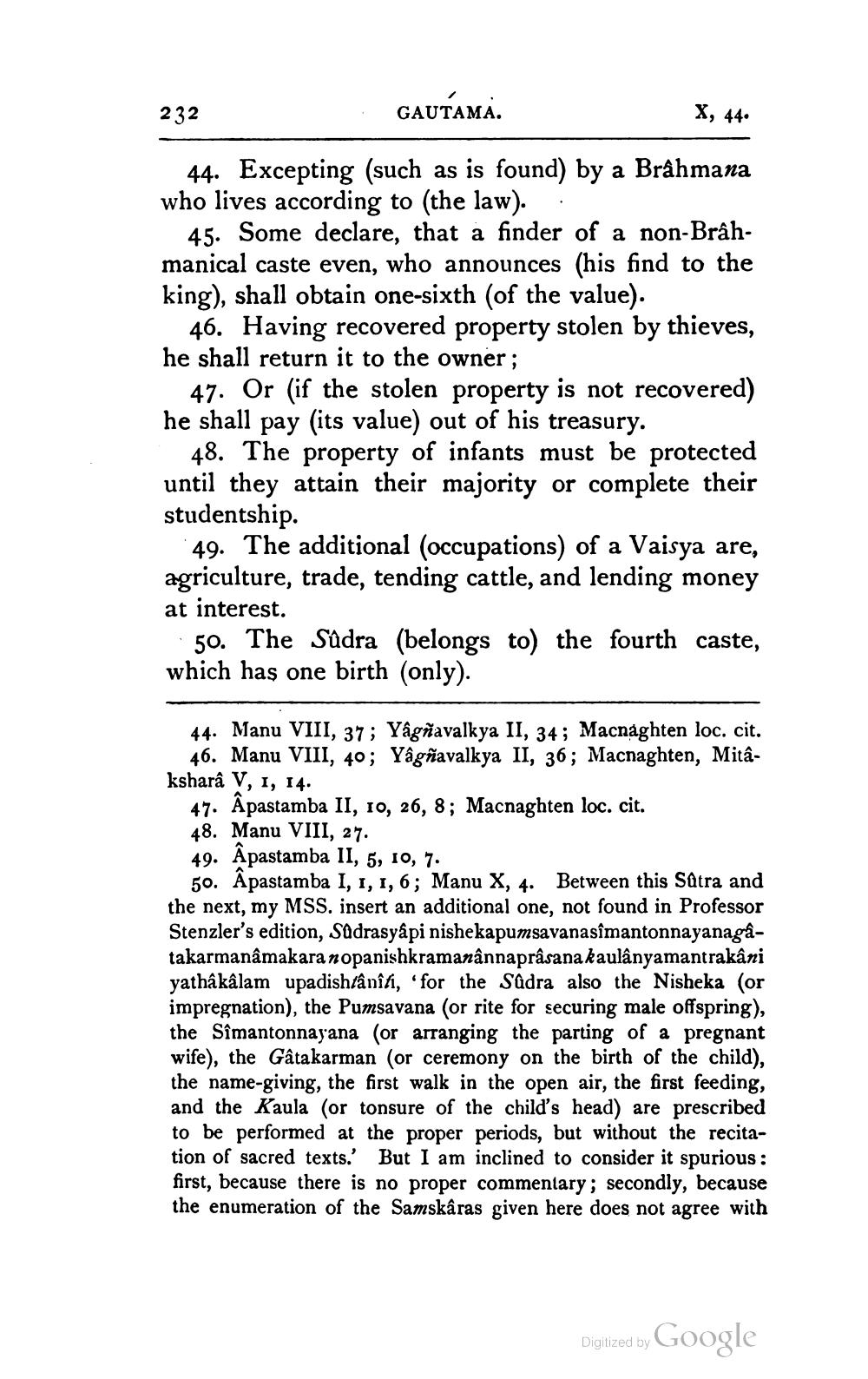________________
232
GAUTAMA.
X, 44.
44. Excepting (such as is found) by a Brâhmana who lives according to (the law)..
45. Some declare, that a finder of a non-Brâhmanical caste even, who announces (his find to the king), shall obtain one-sixth (of the value).
46. Having recovered property stolen by thieves, he shall return it to the owner ;
47. Or (if the stolen property is not recovered) he shall pay (its value) out of his treasury.
48. The property of infants must be protected until they attain their majority or complete their studentship.
49. The additional (occupations) of a Vaisya are, agriculture, trade, tending cattle, and lending money at interest.
50. The Súdra (belongs to) the fourth caste, which has one birth (only).
lontahin
44. Manu VIII, 37; Yâgñavalkya II, 34 ; Macnaghten loc. cit.
46. Manu VIII, 40; Yâ gñavalkya II, 36; Macnaghten, Mitakshara V, 1, 14.
47. Âpastamba II, 10, 26, 8; Macnaghten loc. cit. 48. Manu VIII, 27. 49. Âpastamba II, 5, 10, 7.
50. Apastamba I, 1, 1, 6; Manu X, 4. Between this Sätra and the next, my MSS. insert an additional one, not found in Professor Stenzler's edition, Sadrasyapi nishekapumsavanasîmantonnayanagatakarmanâmakara nopanishkramanânnaprâsana kaulânyamantrakâni yathâkâlam upadishtânîli, 'for the Sadra also the Nisheka (or impregnation), the Pumsavana (or rite for securing male offspring), the Sîmantonnayana (or arranging the parting of a pregnant wife), the Gâtakarman (or ceremony on the birth of the child), the name-giving, the first walk in the open air, the first feeding and the Kaula (or tonsure of the child's head) are prescribed to be performed at the proper periods, but without the recitation of sacred texts. But I am inclined to consider it spurious : first, because there is no proper commentary; secondly, because the enumeration of the Samskaras given here does not agree with
Digized by Google




